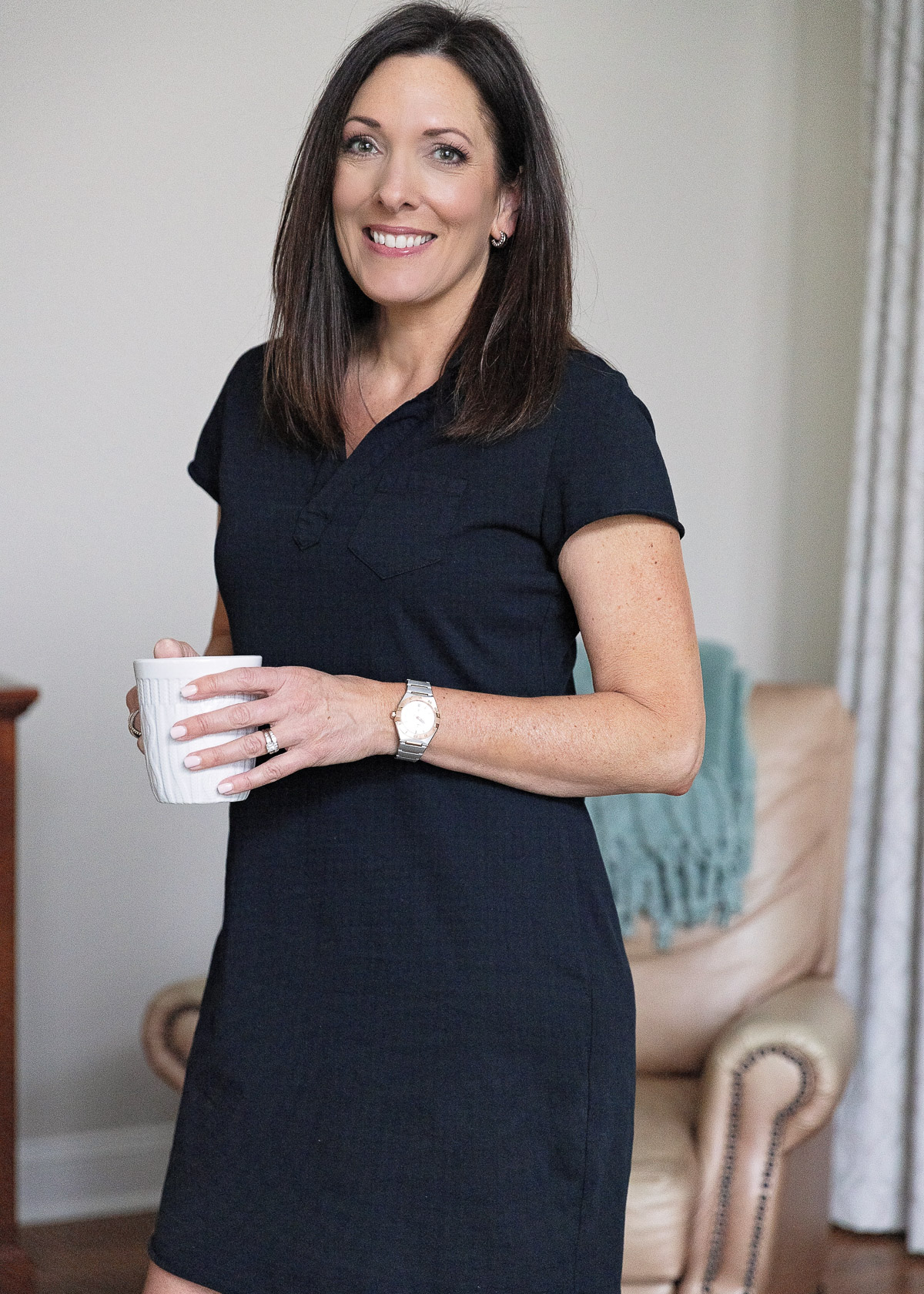**UPDATED**
When I was a teacher, the first time I had parent-teacher conferences, I remember being so nervous I almost wet my pants. Well, I shouldn’t have worried. It’s MUCH worse being the parent!
As you may have guessed, we had parent-teacher conferences at my son’s school last night. Everything went well. But I just do NOT get this new fangled math. Whatever happened to giving kids 30 problems to solve and calling it a day? Every math paper the teacher showed me had about five problems, and then for each one the kids had three or four lines in which to write an explanation for how they arrived at the answer.
HUH???
His teacher explained how they discuss different ways to arrive at the same answer and how wonderful it is because it’s a collaborative effort, and the children learn from one another. It gives them some sort of ownership over the concept and involves them instead of just telling them how to do it one specific way.
Mmmm’kay.
I remember when I was in school, sometimes a teacher would take points off because I didn’t arrive at the answer using the method I was taught. Or because I didn’t show my work. I never got that. If the answer is correct, who cares how you got it?
Nowadays it’s evidently okay to have various ways of arriving at an answer, but now they have to explain how they got it. And I say again, if the answer is right, WHO CARES HOW YOU GOT IT!????
What am I missing here?? Can someone please enlighten me?
The teacher told me that explaining how he arrived at an answer is an area my son needs to work on. Nevermind that he can do double digit addition and subtraction and is working on simple multiplication and division. (He likes to do math problems at home for fun. He’s his father’s son, for sure. Math for fun. Isn’t that an oxymoron?) In school he is working on recognizing patterns and then writing an explanation of the pattern.
I looked at the paper the teacher showed me as an example of his work and said that I’m pretty sure I couldn’t tell her how I arrived at the answer. You just KNOW!
Funny, she said that’s what my son says. What’s that saying about the apple and the tree? Yeah.
One question that gave me a chuckle was when the kids were asked to tell how they know if a number is even or odd. My son wrote, "Because my first grade teacher Mrs. R— told me."
His teacher and I both got a chuckle out of that.
She is a veteran teacher who is obviously still very enthusiastic about her job. I am very pleased with her. She feels there is a lot of value to this new method of learning math, and maybe there is. But I’m dubious. I need to find out more about it. Meanwhile, I guess we will just continue supplementing at home.
UPDATE: These comments are great. And giving me some peace of mind. Last night I was about to start researching homeschool materials. I wanted to respond to a few themes in the comments.
First, my son does have an aptitude for math. I wonder if this method is better for kids who struggle? It seems to me that if a kid "just gets it" then why not move on to bigger and better things? But perhaps learning different strategies and really understanding the underlying concepts will serve him well.
They are also working on memorizing the basic math facts, using the "Mad Minute" which I used when I taught third grade. So they don’t seem to be excluding the basics. I just wish they were moving along faster, but maybe it’s all a wash in the end. As I said, what do I know?
The other thing I have to say is that we were concerned that our son might not be challenged enough, so in a way I’m glad to hear that there is an area he can work on. At least I know he’s not bored.








25 Responses
Math, you either love it or you hate! As a homeschooler we use a program called Everyday Math. And it’s just what you talked about. Thankfully, my girls get 2 days worth of instructions from a teacher that actually knows what she’s doing. But, over the years I’ve gotten use to this “new math” and have come to LOVE it! It’s challenging, interesting, keep these kids on their toes. You’re right, it teaches them that numbers are everywhere and you solve problems many ways. It really helps left and right brain kids. My oldest is in 3rd grade and I’m blown away at the numbers she can add in her head, not counting on her fingers! So, it really does work! Now, I know more of what I’m doing, it’s actually taught me some tricks. I wish I had learned this in school.
As you know my girls go to school 2 days a week. They started using Everyday Math about 5 years ago. It was a struggle to get the parents on board, but the kids loved it. Well, what they found is that once the kids got to middle school they were blowing the test scores out of the water and it forced the older grades to completely revamp their math program. Learning these concepts early have helped the kids as the math gets harder. So, it is a good way of learning. Just hang in there Mom!
Lucky you!! I was teaching this version of math when I got pregnant with C. Its okay and encourages their thinking skills and will benefit later in life as long as they are still learning the basic facts. The collaborative effort/cooperative learning is good for social skills and is fine as long as the teacher is closely monitoring to make sure there is equal input and participation.
I think as long as you have a good teacher, which it sounds like you do, it will be good for your son.
It is funny now that we’re the parents at the conferences, if only we’d known!
My son is in 1st grade and already he has sections on math sheets that require explanation of how he gets his answer…I’m with you, I can get the answer but don’t know how to explain it. I’m stumped helping him! At least they “discuss” it in class so it’s not necessarily something I have to participate in. haha!
And at my first parent-teacher conference last year, I felt like I’d been sent to the principal’s office and could have wet MY pants. Sheesh.
I actually think it is a great idea to encourage the children to think about why the answer is what it is or how they thought of it. I think this is probably a much more effective way of teaching subjects like math where so many kids get confused. Then, the teacher is more likely to find out earlier if they don’t understand a concept. If they don’t understand the basics, they will have a much harder time with advanced math.
You have a smart cookie, there! I agree – I’m a former teacher, and I think it’s MUCH harder being the parent at those conferences!
Perhaps part of explaining how the kids get to their answers has to do with making sure the kids aren’t cheating. And I don’t see any harm explaining how one gets to the answer, although it IS hard a lot of times!
I think your sweetpea is doing GREAT.
Ummm… I’m with you, girl! Obviously he already has an aptitude for math and understands it. His brain just might not be wired to explain each step as to HOW he understands it.
I read a fantastic book called Discover Your Child’s Learning Style. It totally opened my eyes to the way *I* learn things along with my family.
There’s another good one called The Way They Learn by Cynthia Tobias.
You’re doing a super job, Super Mom!
I know what you’re saying. My son is in second grade and will be starting this “new math” this year. His teacher showed me a problem and how to do it at orientation and I just looked confused, I’m sure. What I don’t understand is why they have to learn to do it this way just to go back to doing it the old way in a couple years. I guess we go back to school too, huh?
I’m sure this also has to do with problem-solving skills in general and reasoning skills. If the students become aware of more than one way to do it, they can have more confidence if their first way does not work. It does seem difficult to explain how you arrive at an answer to a math question, but I can see the benefits of really learning the logic. It sounds like these are almost very simplified versions of proofs. Remember those? Math gives me a headache. 🙂
Just a note to let you know I stopped by your cute blog!My sons are 15 ane 18 and let me tell ya, I couldn’t help them in math after grade 4. Hubby was a math major in college and he swears that the old way is better. I don’t know…I was an art major. I spent a great deal of time coloring in the dots on the dominoes they gave us to add and subtract LOL Go figure!
Thankfully, I don’t Jesus will require me to figure out x or y when I see him.
Blessings!
Jan
quiltgirl60
I am horrible at math.
I stopped being able to help my children with math homework years ago.
Thank God my husband is a math genius…or we’d be broke paying tutors!
i used to teach 1st grade. I used a lot of manipulatives because that is what was sorely missing from my math education (I am a very visual hands-on learner)
my daughter is the same way. But we are still “forcing” her to memorize her facts so that she can be more confident (which I never was in the math area…)
Blessings,
Karla
I’m bad at math….but I can tell you why they want you to Show All Work. That’s in case you can handle the complex algebraic equation, but you forget your math facts and make a simple error in computation. This way the teacher can give you partial credit where due.
My teenager has not gotten a handle on this idea yet, because he Just Knows the answer….
What is this “mad math” that you speak of? Matthew (5th grade) is struggling with the basics… like multiplication tables and the like…
Being a teacher/parent would be the hardest, I think, when going to a parent/teacher conference. It would almost be like a teacher/teacher conference! 🙂
I don’t think I’d touch that one with a 10 ft. pole. If I was a teacher and I knew a parent was a teacher too, I’d just tell her that her son was doing great… and see what she would say. If she agreed, I’d let it go at that.
I take the wimpy way out on most things.
~HomeKeeper
The home school curiculum I use, gives other “ideas”, besides the basics, as optional. So I like the fact that I can try to explain that to her or not. Now if I look at it and study it, and I do not get it, then I skip it. I figure if I cannot figure it out, then how am I suppose to teach it right, 🙂 I just like that I can choose.
The home school curiculum I use, gives other “ideas”, besides the basics, as optional. So I like the fact that I can try to explain that to her or not. Now if I look at it and study it, and I do not get it, then I skip it. I figure if I cannot figure it out, then how am I suppose to teach it right, 🙂 I just like that I can choose.
The home school curiculum I use, gives other “ideas”, besides the basics, as optional. So I like the fact that I can try to explain that to her or not. Now if I look at it and study it, and I do not get it, then I skip it. I figure if I cannot figure it out, then how am I suppose to teach it right, 🙂 I just like that I can choose.
The home school curiculum I use, gives other “ideas”, besides the basics, as optional. So I like the fact that I can try to explain that to her or not. Now if I look at it and study it, and I do not get it, then I skip it. I figure if I cannot figure it out, then how am I suppose to teach it right, 🙂 I just like that I can choose.
The home school curiculum I use, gives other “ideas”, besides the basics, as optional. So I like the fact that I can try to explain that to her or not. Now if I look at it and study it, and I do not get it, then I skip it. I figure if I cannot figure it out, then how am I suppose to teach it right, 🙂 I just like that I can choose.
The home school curiculum I use, gives other “ideas”, besides the basics, as optional. So I like the fact that I can try to explain that to her or not. Now if I look at it and study it, and I do not get it, then I skip it. I figure if I cannot figure it out, then how am I suppose to teach it right, 🙂 I just like that I can choose.
The home school curiculum I use, gives other “ideas”, besides the basics, as optional. So I like the fact that I can try to explain that to her or not. Now if I look at it and study it, and I do not get it, then I skip it. I figure if I cannot figure it out, then how am I suppose to teach it right, 🙂 I just like that I can choose.
The home school curiculum I use, gives other “ideas”, besides the basics, as optional. So I like the fact that I can try to explain that to her or not. Now if I look at it and study it, and I do not get it, then I skip it. I figure if I cannot figure it out, then how am I suppose to teach it right, 🙂 I just like that I can choose.
The home school curiculum I use, gives other “ideas”, besides the basics, as optional. So I like the fact that I can try to explain that to her or not. Now if I look at it and study it, and I do not get it, then I skip it. I figure if I cannot figure it out, then how am I suppose to teach it right, 🙂 I just like that I can choose.
I think the theory you mentioned in your update is on the right track. There are many different learning styles and the new math is an attempt to get more children proficient at math.
However I have found that this method tends to make those that are naturally proficient at math and logic problems quite frustrated. I had a younger cousin that could look at problems and just “knew” the answers but almost failed math because he couldn’t put the ‘how’ he came up with the answers into words. Good luck!
Just catching up…The wonky new math is one of the reasons we homeschool our oldest. He “failed” a math test because he didn’t show his work (but got the questions right). When asked to explain step-by-step how he arrived at the solution and show other ways of solving the program he struggled. He explained that he could “see” the answers in his head. It caused him a huge amount a grief and was a blow to his self confidence. His teacher told us he was below average in math. Independent testing showed his math scores were off the chart.
My other son does well with the new math curriculum (he’s still in public schools) even though he has a similar math aptitude. I guess it’s just a case of a one-size-fits-all approach that doesn’t work.
Here is a criticism of two of the popular “new” curriculums:
https://www.youtube.com/watch?v=Tr1qee-bTZI